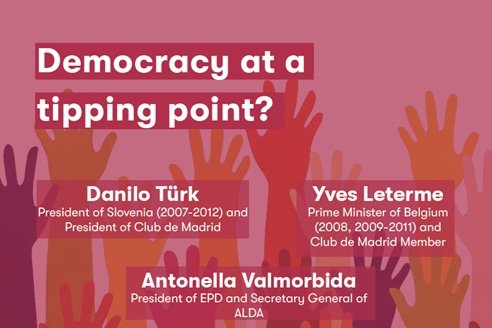Democracy cannot be taken for granted. It has to be protected and supported constantly and by all means, at the domestic and international level, harnessing its capacity for self-correction and innovation.
The world is facing increasingly complex global challenges that require agile and effective responses from governments and institutions. The capacity to respond to issues such as the rise of authoritarianism, tragically illustrated by the war in Ukraine, or pandemics such as Covid-19, will determine citizens’ trust in democracy all over the world and have a direct impact on its long-term survival.
This session will be devoted to identifying mechanisms to improve democracy’s ability to address these crises more efficiently while preserving its most basic values, including the rule of law and human rights, by exploring three basic pillars of action: responsible leadership, resilient institutions and digital democracy. In this exchange, panellists will draw from the recommendations of Club de Madrid’s “Annual Policy Dialogue 2021 “Rethinking Democracy” as well as its “Global Commission on Democracy and Emergencies”.
AGENDA
7 April, 09:00 – 10:30 a.m. (CET)
Press Club Brussels Europe, Rue Froissart 95, 1000 Brussels
ONLINE SESSION
Welcoming Remarks:
María Elena Agüero, Secretary-General of Club de Madrid
Sam van der Staak, Head of International IDEA’s Europe Programme
Speakers:
Danilo Türk, President of Slovenia (2007-2012) and President of Club de Madrid
Yves Leterme, Prime Minister of Belgium (2008, 2009-2011) and Member of Club de Madrid
Antonella Valmorbida, President of European Partnership for Democracy and Secretary-General of ALDA
Facilitator: Marilyn Neven, Programme Manager, International IDEA
How can we strengthen democracy’s system of checks and balances and improve early-warning mechanisms to prevent our democracies from backsliding and drifting into more autocratic forms of government? What are the lessons learned from emergencies like the Covid-19 pandemic and what needs to change to allow us to act effectively in future emergencies/crises? What are the implications of the Russian Invasion of Ukraine for the future of Democracy in the region, in Europe and the world?

